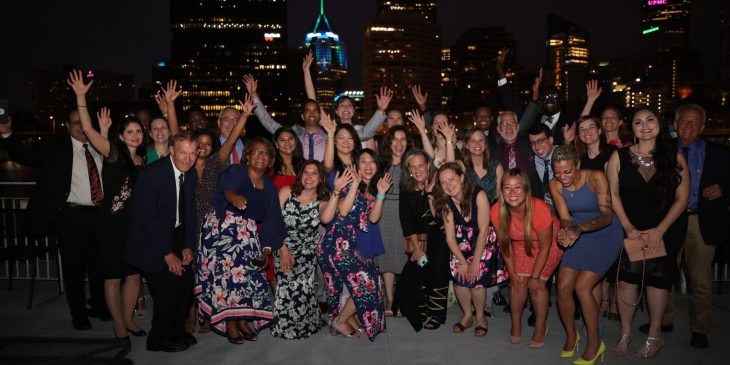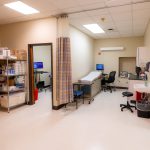As a child, Dr. Ed Goralczyk knew he wanted to be a physician. He drew inspiration from his mother, who was a nurse, his grade school biology classes and the hit television series, “Marcus Welby, M.D.” Running from 1969 to 1976, the ABC medical drama featured a wide variety of patients and conditions and coincided with the rise of family medicine as a medical specialty in the United States.
When Goralczyk graduated from the University of Pittsburgh School of Medicine in 1977, he was among the first physicians trained at the UPMC McKeesport Family Medicine Residency Program, which celebrates its 50th anniversary this year.
“You get the full picture on a family’s health as well as learn their history,” said Dr. Goralczyk, adding that family medicine physicians do “a little bit of everything.”
McKeesport is a mill town that thrived with the boom of the steel era in Pennsylvania. Since the 1980s, the economic landscape has shifted, with McKeesport facing its share of challenges as a result. The steel industry’s decline caused the population to dwindle, leaving residents with an aching tax base and limited resources for jobs and transportation. The health consequences were devastating, but McKeesport is a tight-knit community with residents weathering the challenges together.
“We serve a broad population in this area, and it really is a gem of a place” said Dr. Tracey Conti, UPMC Andrew Mathieson Chair of the Department of Family Medicine at the University of Pittsburgh School of Medicine. “We want to train residents to be able to serve whatever environment they find themselves in.”
Dr. Robert Bazylak was the first graduate of the program in 1974. Originally from McKeesport, he knew many of the people who came into McKeesport Hospital, and he was eager to pioneer a new family medicine program in his hometown.
“All the cars would have dust on them from the mills,” said Bazylak. “Everyone was a hard worker. I think that drove me to be a hard worker. Plus, there were eight children in my family, and my dad had three jobs. It just inspired me to work hard.”
While he has a storied journey through his 50 years in medicine, including serving as a flight surgeon in the U.S. Air Force Reserves, Bazylak said he’s motivated by the impact he’s had on generations of patients.
“In family practice, you see the whole patient. I have people now that come to me and say, ‘You delivered me, and you took care of my mother.’”
Today, family medicine residents see patients at the UPMC Latterman Family Health Center, the free 9th Street Clinic for the uninsured, and UPMC McKeesport. Community partnerships are key to the program’s success, said Conti.
For example, the Latterman Community Advisory Council is made up of community leaders and Family Medicine residents, faculty, staff and patient representatives. The council meets throughout the year to address ongoing local health issues, and work in conjunction with additional local stakeholders to address healthcare disparities. These efforts result in solutions-based programming addressing food and nutrition access, HIV/AIDS education and more.
“Centering community voices is essential to our work,” said Conti.
Current resident Dr. Carlie Hoffman recognizes the importance of listening to her patients and feels a sense of purpose and responsibility in her work as a physician. With many patients facing social and environmental risk factors, she and her colleagues collaborate to connect them with the resources they need to improve their health outcomes.
“A large part of our role as a physician is to advocate for our patients,” said Hoffman. “We do that every day with every encounter we have, whether that be helping to coordinate transportation for patients, scheduling with specialists, or using telehealth. There are barriers to their care that we can help with.”
UPMC McKeesport’s Family Medicine Residency Program was formally celebrated in August when program alumni from around the country came back to the area to reconnect with former colleagues and mentors. Attendees reflected on the program’s past while envisioning its direction for the next 50 years. As the healthcare field continues to evolve, UPMC is committed to training and educating new generations of physicians to provide care into the future.
“The Latin root of the word doctor is ‘teacher,’” said Goralczyk. “We have, as doctors, a responsibility to keep teaching.”









